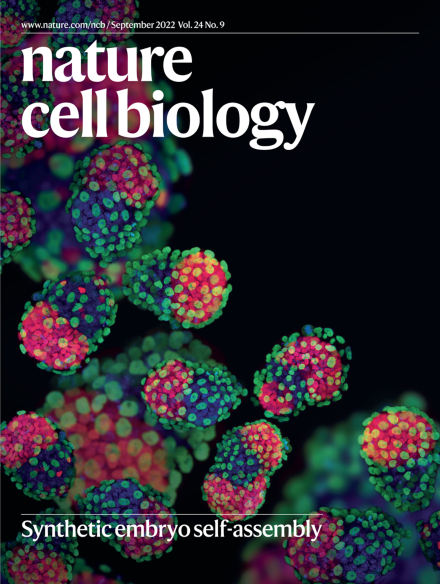Epigenetic alterations facilitate transcriptional and translational programs in hypoxia.
IF 19.1
1区 生物学
Q1 CELL BIOLOGY
引用次数: 0
Abstract
Adaptation to cellular stresses entails an incompletely understood coordination of transcriptional and post-transcriptional gene expression programs. Here, by quantifying hypoxia-dependent transcriptomes, epigenomes and translatomes in T47D breast cancer cells and H9 human embryonic stem cells, we show pervasive changes in transcription start site (TSS) selection associated with nucleosome repositioning and alterations in H3K4me3 distribution. Notably, hypoxia-associated TSS switching was induced or reversed via pharmacological modulation of H3K4me3 in the absence of hypoxia, defining a role for H3K4me3 in TSS selection independent of HIF1-transcriptional programs. By remodelling 5'UTRs, TSS switching selectively alters protein synthesis, including enhanced translation of messenger RNAs encoding pyruvate dehydrogenase kinase 1, which is essential for metabolic adaptation to hypoxia. These results demonstrate a previously unappreciated mechanism of translational regulation during hypoxia driven by epigenetic reprogramming of the 5'UTRome.表观遗传改变促进了缺氧的转录和翻译程序。
对细胞应激的适应需要一个尚未完全理解的转录和转录后基因表达程序的协调。在这里,通过量化T47D乳腺癌细胞和H9人胚胎干细胞中缺氧依赖的转录组、表观基因组和翻译组,我们发现转录起始位点(TSS)选择的普遍变化与核小体重定位和H3K4me3分布的改变有关。值得注意的是,缺氧相关的TSS转换可通过H3K4me3在缺氧情况下的药理调节诱导或逆转,这表明H3K4me3在TSS选择中的作用独立于hif1转录程序。通过重塑5' utr, TSS开关选择性地改变蛋白质合成,包括增强编码丙酮酸脱氢酶激酶1的信使rna的翻译,这对于代谢适应缺氧至关重要。这些结果表明,在5'UTRome的表观遗传重编程驱动下,缺氧期间的翻译调节机制以前未被认识到。
本文章由计算机程序翻译,如有差异,请以英文原文为准。
求助全文
约1分钟内获得全文
求助全文
来源期刊

Nature Cell Biology
生物-细胞生物学
CiteScore
28.40
自引率
0.90%
发文量
219
审稿时长
3 months
期刊介绍:
Nature Cell Biology, a prestigious journal, upholds a commitment to publishing papers of the highest quality across all areas of cell biology, with a particular focus on elucidating mechanisms underlying fundamental cell biological processes. The journal's broad scope encompasses various areas of interest, including but not limited to:
-Autophagy
-Cancer biology
-Cell adhesion and migration
-Cell cycle and growth
-Cell death
-Chromatin and epigenetics
-Cytoskeletal dynamics
-Developmental biology
-DNA replication and repair
-Mechanisms of human disease
-Mechanobiology
-Membrane traffic and dynamics
-Metabolism
-Nuclear organization and dynamics
-Organelle biology
-Proteolysis and quality control
-RNA biology
-Signal transduction
-Stem cell biology
 求助内容:
求助内容: 应助结果提醒方式:
应助结果提醒方式:


